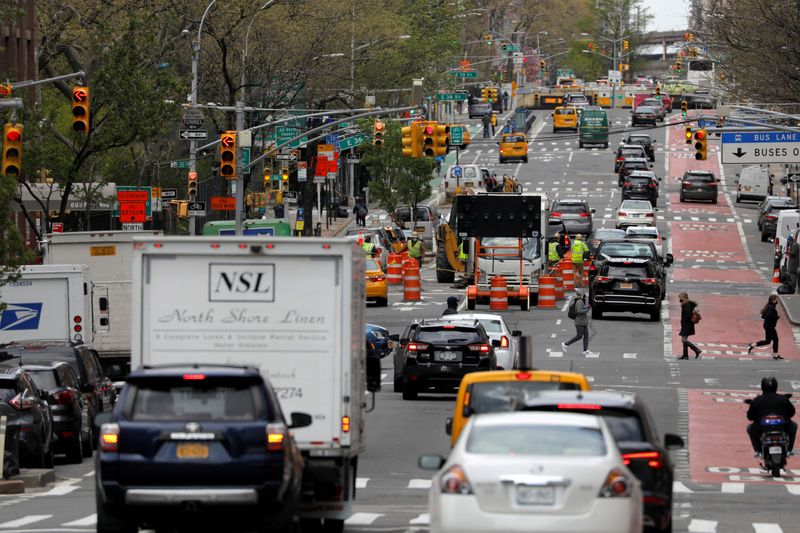New Jersey sues to block New York traffic congestion plan
2023.07.21 15:35

© Reuters. FILE PHOTO: Traffic travels on First Avenue in Manhattan, New York City, New York, U.S., April 22, 2021. REUTERS/Andrew Kelly/File Photo
By David Shepardson
(Reuters) -New Jersey sued the Biden administration on Friday seeking to block New York City’s plan to impose tolls on vehicles in Manhattan to fight congestion and pay for mass transit, saying it was unfair to residents of the neighboring state.
The city aims as early as next year to charge a daily toll of up to $23 on vehicles in central Manhattan between 60th Street in Midtown and Battery Park on the southern tip.
In its lawsuit in U.S. District Court in Newark, New Jersey said the federal highway administration’s environmental review of the plan was inadequate. The body also ignored the financial and environmental burdens on New Jersey residents, it said.
Tens of thousands of drivers commute from New Jersey to Manhattan for work.
New Jersey said it would suffer because some drivers would reroute into the state to avoid the toll and it would not receive money from New Yorkers who enter New Jersey.
“New Jersey will bear much of the burden of this congestion pricing scheme—in terms of environmental, financial, and human impacts—but receive none of its benefits,” the lawsuit said.
New York City, which has the most congested traffic of any U.S. city, would become the first major city in the U.S. to follow London, which implemented a similar charge in 2003.
In 2022, New York said the charge would cut traffic, improve air quality and increase transit use by 1% to 2%. The toll would generate $1 billion to $1.5 billion a year and support $15 billion in debt financing for mass transit improvement.
“As any one in New Jersey knows, if you screw Jersey, buckle up. We’re not backing down,” New Jersey Democratic Representative Josh Gottheimer said.
New York Governor Kathy Hochul said the plan was crucial to reduce congestion in New York City and said most New Jersey residents commuting to New York City use public transportation and would benefit from better mass transit. The federal highway administration declined to comment.








